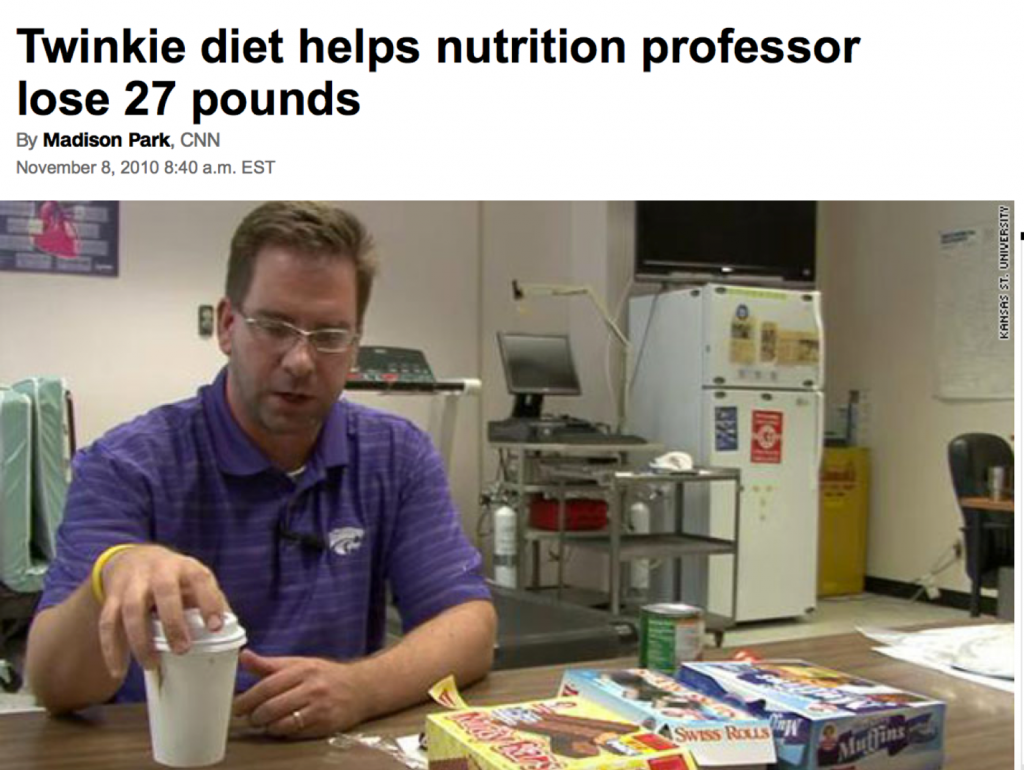
474: 7 Fat Loss Lies You Need To Stop Believing with Ted Ryce
I used to think fitness magazines were for genuine education.
I bought several every month and perused them page by page, looking for insights, tips, and tricks.
Sure, I picked up a couple of things from an issue here and there but I was never able to put together the entire puzzle of creating a healthy, lean and muscular body.
Eventually, I came to my senses and realized fitness magazines are more for entertainment than edification.
So I turned my back on the newsstand and went off to learn the principles of how nutrition really works, how to train effectively, and how to stop wasting hundreds of dollars per month on worthless supplements.
That’s when everything changed for me.
Maybe for you, it’s not magazines. Maybe you’ve been reading popular diet books. Or both.
My point is that much of what you’re “learning” in magazines and from popular diet books are geared toward selling you products, not actually helping you achieve your goals as efficiently as possible.
In fact, many of the most popular diet books out there today actually promote some fat loss ideas we know to be false.
How do I know?
Because I’ve worked with people who were following these diets and weren’t getting results.
It wasn’t until I told them the facts and proved it to them with results did they start to understand what it really takes to lose fat.
Too many people are following misinformation and are frustrated with their lack of results.
In this article, I’m going to go over what I consider to be the top 7 fat loss lies and the nutrition facts and science behind them.
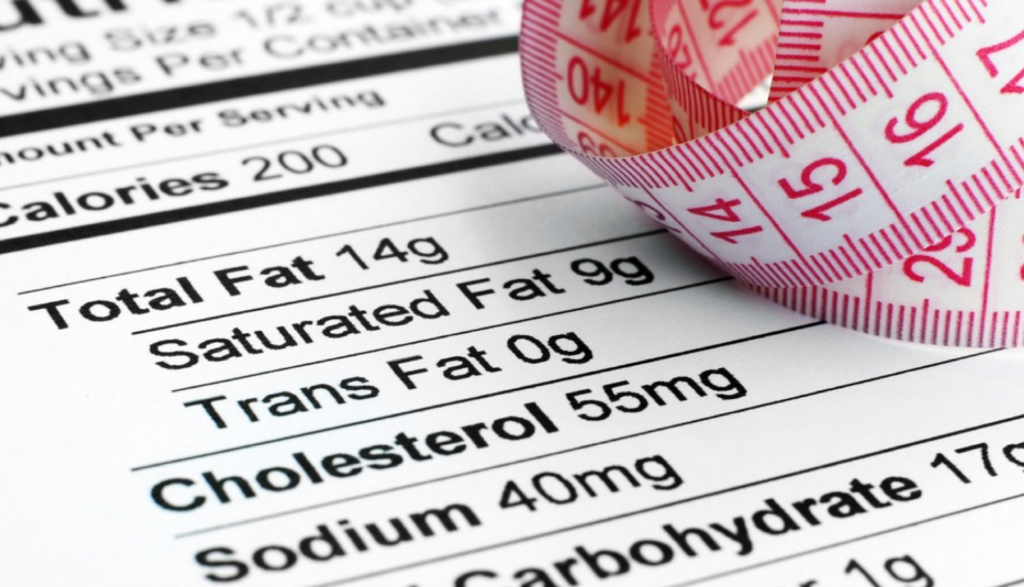
#1: Calories don’t matter
This one drives me nuts.
What if someone told you that they wanted to drive from Miami Beach (where I live) to Los Angeles.
Then you asked them about how many miles that is and how many gallons of gas they need to get there.
Then they told you that gas doesn’t matter.
As long as you use clean, organic, non-GMO fuel then it doesn’t matter how much gas it takes.
That’s as asinine as saying, “Calories don’t matter.”
In fact, the entire struggle of survival for animals and pre-agricultural man was to get more energy from food (i.e. calories) out of the environment than the energy they use to get the food.
This is the concept of energy balance based on the First Law of Thermodynamics—which states that “energy cannot be created or destroyed, only transferred.”
And when we talk about energy balance and fat loss, we’re referring to the relationship between the amount of energy you eat and the amount you burn.
I tell people that it’s like a bank account.
- If you eat more energy than you burn, you’re in a positive energy balance and you gain weight.
- If you eat less than you burn, you’re in a negative energy balance and you lose weight.
This energy balance is measured in calories—the thing that many people believe doesn’t matter when it comes to weight loss.
Next time someone says that calories don’t matter, ask them what a calorie is in the first place and see if they can answer it without asking Google.
Just so you know, a calorie is the amount of energy required to heat 1 kilogram of water by 1 degree Celcius.
In my general chemistry class, we even did experiments with a calorimeter to measure the amount of energy produced in combustion reactions.
But I digress…
Calories are just a way to measure the potential energy in food.
Foods that are calorie-dense (like muffins, bagels, pasta, ice cream, etc.) contain a lot of energy.
Foods that are low in calories (like spinach, lettuce, broccoli, etc.) don’t have as much energy in them.
My point is this.
The unsexy truth is that for weight loss to happen, you need to eat less energy than you burn.
Conversely, if you want to gain weight you’ll have to eat more calories than you burn.
This isn’t just my opinion. It’s a scientific fact that has been proven over and over again in decades of metabolic ward research.
Calories don’t matter? Hah. I wish.
A more accurate thing to say is that energy balance/calorie intake is the most important determinant of whether you lose or gain weight.
That means that even if you eat the “cleanest” diet in the world if you still eat too much, you’ll gain weight.
And even if you eat mostly junk food, you can lose weight as long as you burn more calories than you eat.
He simply ate fewer calories than his body burned and he lost weight.
You may think he became unhealthy as a result of eating all that junk food even though he lost weight.
But that’s not what happened.
His biomarkers for heart health improved. He reduced his triglycerides (circulating fat in the blood) by 39%, dropped his LDL by 20% and raised his HDL by 20%.
The best part is that he became overweight in the first place by eating “clean” foods with occasional indulgences.
Sound familiar?
It does to me because I had a very similar thing happen.
I was eating “clean” foods, mostly organic vegetables and fruits, free-range poultry, grass-fed meats and wild-caught fish with the occasional indulgence.
Mostly low-carb meals too. And I was lifting weights anywhere from 4-6 times per week.
Yet, my body fat % was in the overweight range and I tested with prediabetic Hemoglobin A1c levels.
I don’t even have a history of diabetes in my family.
Oh, and I was having sleep apnea episodes.
Simply stated: I was unhealthy even though I ate healthy food.
Why?
Because I was eating too much. #calories
The big disconnect seems to be between eating healthy and being healthy.
And if you have too much fat on your body, you’re not that healthy—even if you got fat by eating “healthy” foods.
Calories matter. Lower your calories and you’ll lose fat. Eat too many of them (regardless of the source) and you’ll get fat.
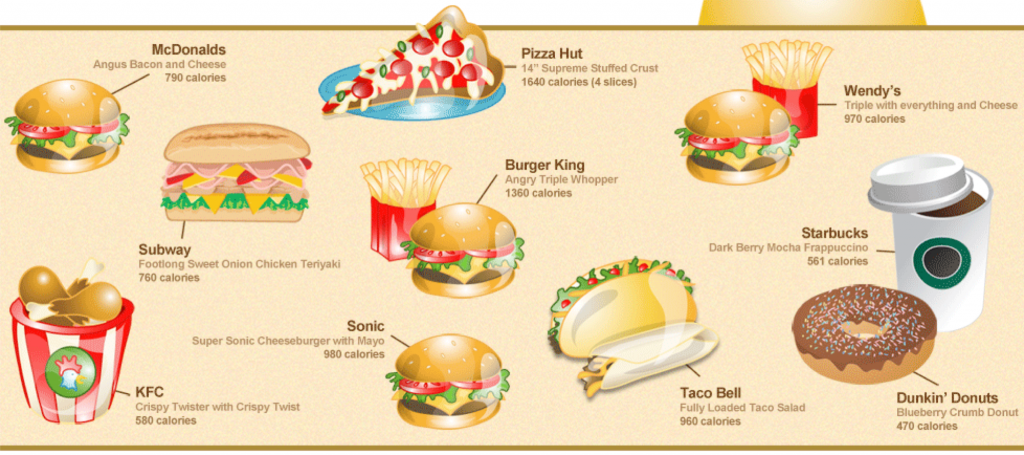
#2: Calories are the only thing that matter
The first thing that people say when you bring up calories is that not all calories are equal. Technically this isn’t true. (Refer you back to the definition of calorie in the last section.)
But I know what people mean. Their point is that it matters what foods you get your calories from. And that’s 100% true.
First of all, we don’t eat calories. We eat food.
A calorie is a measurement of energy and we can definitely estimate how many calories are in any given food.
But a better way to determine how much you’re eating to look at the grams of each of the macronutrients we eat and how many calories are in each.
| Nutrient | Calorie per gram |
| Protein | 4 calories per gram |
| Carbohydrates | 4 calories per gram |
| Fat | 9 calories per gram |
| Alcohol | 7 calories per gram |
As you can see, fat has the most calories per gram.
This is important because it’s easy to pour a couple of tablespoons of organic, non-GMO, cold-pressed olive oil onto your “healthy” salad without knowing that you’re getting 28 grams of fat (240 calories) and without really feeling them either.
Yes, olive oil is healthy. But being lean is healthier.
Alcohol comes in as the second-most calorie-dense nutrient. Although alcohol shouldn’t be a staple source of energy, many of my clients in Miami Beach are dumbfounded when they follow a strict diet but don’t lose any fat.
After digging a little deeper into how strict they actually are, I invariably find that they’re having several alcoholic drinks at night, every night.
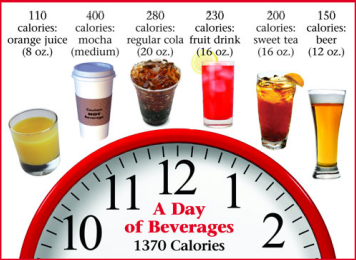
Protein and carbohydrates have the same amount of calories per gram. But that’s not the whole story.
We’ll talk more about carbohydrates in the next lie. Right now I want to focus on protein.
If there’s one thing I want you to know is that protein is a rock star for fat loss. I’ve spoken about this many times before but I’ll go over the top reasons again briefly here.
- Protein causes you to feel satisfied.
If overeating (relative to how many calories we burn through our metabolism and activity) is the cause of fat gain, then stopping ourselves from overeating is key to maintaining a healthy body fat percentage.
While some people believe that willpower should be able to stop us from reaching more food, I’ve seen from experience that this approach is a losing battle that leads to frustration and failure.
Instead, work with your body by eating enough protein at ever meal to feel full.
- Protein will help you maintain lean body mass on a fat loss diet.
Losing fat and weight is not the same thing. Far too many people get excited about dropping weight when they don’t even know where that weight is coming from.
And far too often people will lose muscle on a weight loss diet if they don’t eat adequate protein. What ends up happening is that they become smaller, weaker versions of themselves. And they still have too much body fat.
I’m guessing that you not only want to weigh less on the scale but you also want to look good naked (i.e. lean with visible muscle definition). The way to do that is to keep your protein high during a diet and cut down on fat and carbs.
That’s what I do in our coaching program with my 1-on-1 clients and Legendary 90 coaching group.
- Protein has a higher TEF.
If you haven’t been reading my articles or listening to my podcast, you may not know what TEF is. TEF stands for the thermic effect of food.
The thermic effect of food is the number of calories you burn to digest your food. Yes, even breaking down your food is an energy-intensive activity. Pretty cool, right?
The TEF for most mixed macronutrient meals is estimated to be around 10%. Meaning that 10% of your meal’s calories get used just to digest it. But with higher protein meals, the TEF can be 15-20% or more.
I could go on and on about the nuances about how not all calories are equal and talk about why people hit plateaus on a calorie-restricted diet when the math says that they should be losing weight but I’ll save that for another blog post.
The main point here is that while calories definitely count, there’s more to weight loss than the calories in your food—especially if losing fat and having a muscular body is your goal.

#3: Carbohydrates make you fat
“Carbs raise insulin levels and insulin is the fat-storing hormone. Therefore, carbs make you fat.” – Me circa 2003
Not only did I believe this. I used to preach this to everyone. It seemed so straightforward. And I was pretty muscular and cut at the time—which leads to my credibility.
However, I was wrong.
And everyone else who says that there’s something special about carbs that make you gain fat is wrong too. It doesn’t matter how they look or whether they have a bestselling diet book.
As I’ve already said…
Carbohydrates don’t make you fat. Overeating does.
Once you understand this truth and apply it to your life, losing fat becomes a lot easier.
You stop looking for the magic solution or to cut out the bad foods that are wrecking your hormones and slowing your metabolism.
You sit down and do the work….and enjoy the results.
You may wonder why low-carb dieting is all the rage. And why there are plenty of studies that supposedly “prove” the effectiveness of low-carbohydrate approaches to fat loss.
However, when you dig a bit deeper, the missing part of the puzzle was keeping protein intake similar when comparing low-carbohydrate diets to mixed macronutrient diets.
In fact, the latest and best study we have on the subject is from researcher Kevin Hall where he took a group of 17 overweight or obese men and admitted them to a metabolic ward. Then he compared 4-weeks of a calorie-restricted high-carbohydrate diet and compared it with 4-weeks of a low-carbohydrate ketogenic diet. And because he’s a smart guy and understands the importance of protein during a fat loss diet, he kept the protein intake the same.
The result?
The low-carbohydrate, ketogenic diet offered no metabolic advantage. In other words, fat loss was about the same—actually a little slower for the ketogenic diet group.
Watch this video for an in-depth explanation by Kevin Hall and what he discovered about low-carbohydrate diets, the “insulin hypothesis” and the purported fat loss benefits of ketogenic diets:
By the way, this isn’t to say that you should go carb crazy and start putting away bowls of pasta and pounding pizza down your gullet.
The point is that protein is the number one most important fat loss macronutrient and cutting carbohydrates as opposed to fat doesn’t really offer any increased fat loss.
However, there is some evidence that low-carb diets might be more effective for certain people. A University of Colorado study, done in 2005, showed that insulin-resistant women lost more weight on a low-carb diet.
Conversely, the insulin-sensitive women lost more weight on a higher-carbohydrate diet. Unlike many other studies using low-carbohydrate diets, they kept the protein intake the same for both groups at 20%. Although it’s only one study, it does suggest that for insulin-resistant people, a low-carb approach may work slightly better.
How do you know if you’re insulin resistant?
Well, a trip to your doctor to get a basic blood chemistry panel would tell you.
If you have elevated fasting glucose or Hemoglobin A1c levels, then you have your answer.
But if you’re overweight or obese and you’re a few years behind on your workouts, then it’s pretty safe to say that you probably have some degree of insulin resistance going on.
To offer another perspective on the “carbs make you fat” line of reasoning, think about how easy it is to eat a loaf of bread or a delicious pizza?
I don’t know about you but I love good bread and a gourmet pizza. And it’s easy for me to eat way too many calories when tempted with those savory treats.
Now compare the pizza and bread to a stick of butter or an avocado. I love both of these foods.
But I’m not going to sit down and eat a stick of butter nor am I going to binge eat avocados. They’re good but not that good.
So from a behavioral perspective, carbohydrates tend to be calorie-dense and super tasty to many of us.
Especially when carbohydrates and fat are mixed together into a pizza with oozing cheese or full-fat ice cream. These are what are called “hyperpalatable” foods.
I know all this isn’t as simple as we’d like. And the “carbs make you fat so don’t eat carbs” reasoning sounds so easy and straightforward.
But that’s why people are so unsuccessful with transforming their bodies. They simply don’t understand the underlying principles well enough to lose the fat and keep it off.
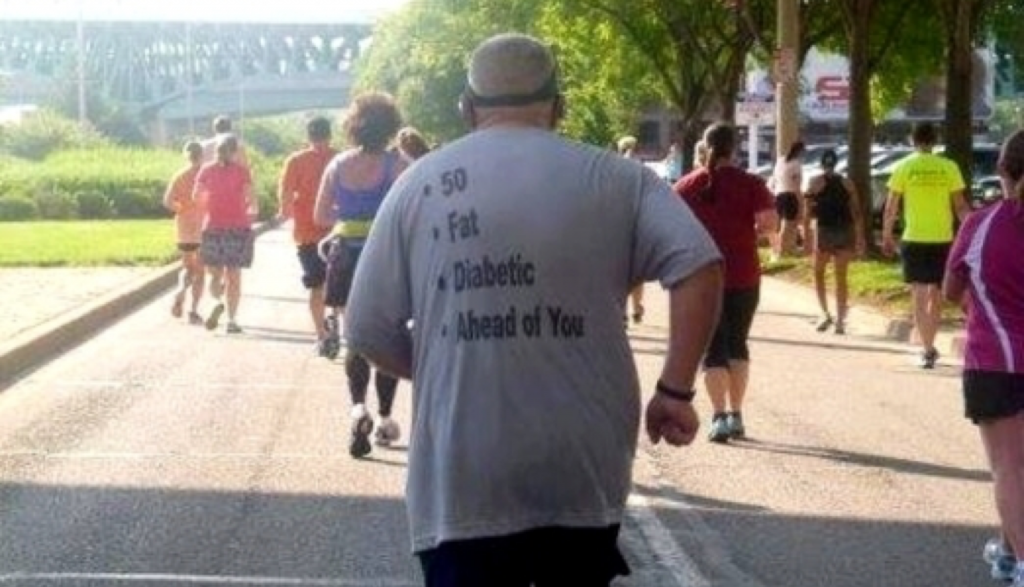
#4: Cardio is the best exercise for burning fat
Here’s another myth that just won’t go away.
Although aerobic exercise burns a higher percentage of fat per minute spent exercising, aerobic exercise alone does not necessarily lead to a leaner body.
Recent research papers with titles like “Aerobic exercise does not lead to weight loss” are demonstrating that steady-state aerobic exercise by itself isn’t effective for fat loss.
So what is?
Well, researchers from the Harvard School of Public Health looked into it with a 12-year study on 10,500 male health professionals. The study looked into a number of different aspects of men’s health, but one of the main ideas being investigated was the effects of weight training vs. cardio on waist circumference.
BMI is very misleading but waist circumference is a solid indicator of abdominal adiposity a.k.a. “beer belly.”
They compared the participant’s activity levels over the 12-year period to see which exercise method—cardio or weight training—had the most effect on men’s waistlines.
What they found was that those men spent more time lifting weights had less gain in their waistline than the men who spent more time doing cardio (i.e. moderate-to-vigorous aerobic exercise).
And of course, the men who spent less time doing any exercise grew the biggest bellies.
So, after 12-years of looking into the exercise habits of 10,500 men (let that number sink in for a minute), the researchers found that the men who spent the most time lifting weights had the smallest waistlines.
One interesting point is that the group of men who performed the most cardio exercise actually weighed less than the weight lifters but had bigger bellies.
I don’t know about you but I’d rather weigh more on a scale but have a slimmer waistline (i.e. less belly fat) any day.
There are two things I want you to take away from this study:
- Men who lift tend to have smaller waistlines than guys who mostly do cardio
- Exercise—whether you run or lift—isn’t enough to stop the average man’s belly from growing.
You see, what they didn’t come out and say clearly is that all the men got fatter over the 12-year period.
The weight lifters just didn’t get as fat. Not exactly the great news we’d hope to hear from 12 years of consistent exercise.
The reality is that maybe if you’re a professional NBA player or Olympic swimmer, you’d be able to exercise hard and frequently enough to burn off all the excesses of modern life.
But for the rest of us, casual exercise, in any form simply isn’t enough to keep our midsections in check.
What I have my clients do is a combination of resistance training, aerobic exercise and attention to nutrition.
Without some combination of these 3 things, you’re never going to get to keep your belly fat at bay.
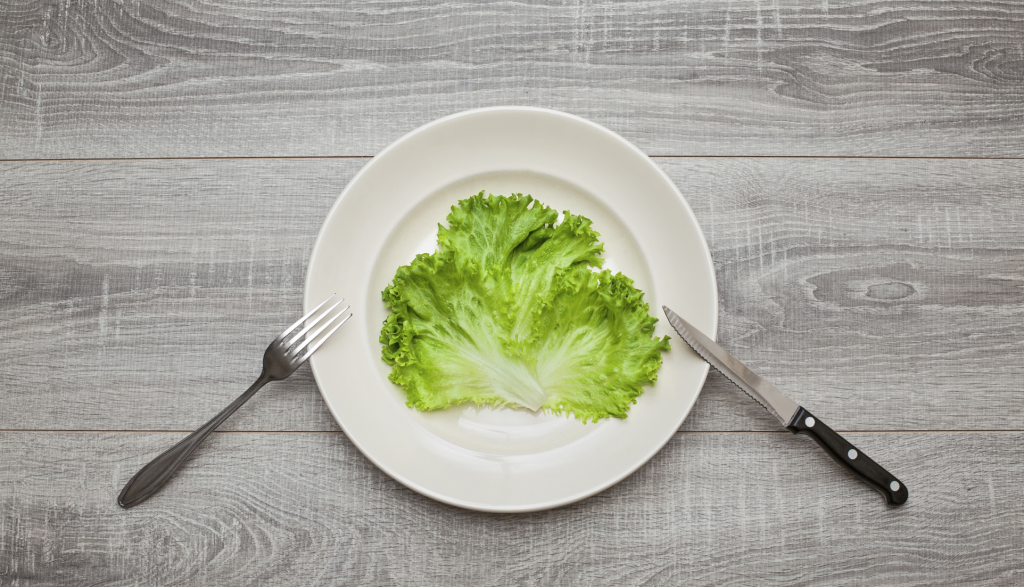
#5: You have to starve yourself to lose fat
To lose fat, you have to put yourself in a calories deficit.
There’s simply no way around this. Whether you choose to create that deficit but doing a ridiculous amount of exercise or do it the smarter way and learn to eat better, the deficit needs to happen for fat loss to occur.
What doesn’t need to happen is to try a starvation diet.
Or to do something ridiculous like the “Master Cleanse” where you just drink lemon water for a week.
You‘ll lose weight all right. And electrolytes. And muscle. Lol
Nope. No need to do anything silly.
In fact, with my coaching clients, I aim to keep their hunger, cravings and energy levels in check.
Why?
Because willpower won’t work.
Dieting is not fun. But you don’t want to make it any harder than it needs to be.
And if someone is constantly hungry, having cravings or dragging because of low energy levels, the chances are that they won’t be able to stick with the plan.
If you’re constantly hungry, you’ll probably give in when a coworker brings a box of donuts on “donut Friday” in the office. I know I would J
If you’re constantly having cravings, you know it’s only a matter of time before you give in. One stressful day at work or home and boom you’re binging on the ice cream or pretzels or chips.
If you’re too low in energy, you can’t be effective at work, at home or in your workouts.
Low energy from crazy dieting may even make you move less throughout the day leading to less energy being expended and ruining the deficit that you’ve created for yourself.
I address all these factors in my 1-on-1 coaching and with my Legendary 90 body transformation group. But I want to give you some ideas of how to handle them on your won.
For hunger, make sure you eat enough protein. As I’ve already mentioned, protein makes you feel full by activating satiety signals in your brain.
So whenever you feel hungry, reach for a serving of *lean* protein to help combat your hunger. Fibrous vegetables also help too.
A meal based around lean protein and vegetables should be your go-to meal when dealing with hunger while trying to lose fat.
For cravings, it can be a little trickier. One thing I’ve tried with my clients is a product called MealEnders.
Apparently, there’s some science behind it but I just bought a bag after seeing them on show Shark Tank. I’ve had mixed results with clients but it’s worth a try it if you have issues with cravings—especially after a meal. Another thing you can do is to take a walk and get some activity in when you’re having a craving. This is probably best but I think most people simply won’t do it.
For energy levels, make sure that you’re not is such a deep calorie deficit that you have no energy.
You should still be able to get in some low-volume weight lifting and walks without a problem.
You may not hit any personal records, but hey, you don’t need to while on a fat loss plan.
Keep focused on the goal.

#6: Losing Fat Can Be Accomplished quickly and easily
If there’s one lesson that everyone learns when they work with me to lose fat is that they have a lot more body fat to lose than they thought.
And it takes much longer than you’d like.
Yes, you can lose fat pretty fast—especially with some of the methods I use for my clients—but it’s still going to take time. And it will take longer than longer than you think.
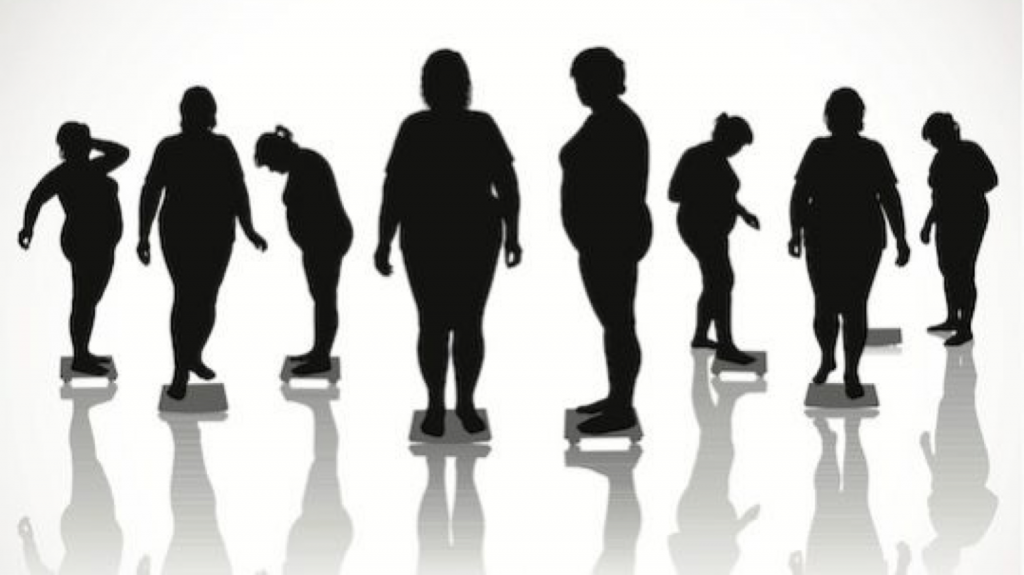
#7: Some people will never be able to get lean because of their genetics
It’s very common to hear people say “I have bad genes” or “It runs in my family” when speaking about the root of their weight problems.
Although we may not be geneticists or molecular biologists, we all intuitively understand that there is something very powerful at work in the science of genetics.
The question is: do our genes determine our fate when it comes to our weight problems? The answer is yes…and no.
“Bad” Genes
I constantly hear people make reference to “bad” genes as the reason they have weight problems or “good” genes as the reason someone is in shape.
While there are genetic disorders, including one that makes you fat, most people do not have them; they have genetic tendencies.
The difference between a tendency and a disorder is that a tendency is a chance you will develop a problem versus a true disorder where you are born that way.
Some examples of real genetic disorders are Down Syndrome (where you are born with an extra chromosome) and Prader-Willi Syndrome (where you are born with seven genes that are missing or not working properly).
Genetic tendencies mean you have the potential to develop a problem but your lifestyle and/or environment will ultimately trigger the disorder.
Conversely, genetic disorders are your fate. There is not much you can do, at least where technology is right now, if you are born with missing genes or an extra chromosome.
Now that we have distinguished between a true genetic disorder and a genetic tendency, let’s look at some research regarding the so-called “fat gene”.
The FTO Gene
Recent research has shown that there is a gene called FTO, or the “fat mass and obesity associated” gene.
It has been estimated that 40% of the United States population has a single copy of this gene (inherited from one parent) while 17% have double copies (inherited from both parents).
People who have this gene have a higher chance to develop obesity while those with double copies are 2.5 times more likely to become obese.
So if you have a single, or double copies, of this gene, does it mean you are genetically destined to be fat? Not necessarily.
Something that I think that is important to mention is that the FTO gene and other so-called fat genes were probably not a problem a couple of hundred years ago.
It is because of the changes in our lifestyles and environment that these genes now pose a risk for gaining weight.
To a significant extent, obesity and being overweight is a problem due to our modernized lifestyles.
Turning Off Your Fat Genes
We have already gone over the differences between disorders and tendencies, but now we will look at ways to influence your genes. Just because you have a gene doesn’t mean it is even working.
Genes have to be turned “on” so that they work.
This is called “gene expression.” You may have the gene to be blonde-haired, but if that gene is never expressed, you may have brown hair.
Let’s take a look at several studies to take the concept of gene expression and regulation further. One study, reported in Reuters, done on a group of Amish people, found that individuals who carried the FTO gene but were very physically active, weighed about the same as those who did not carry the gene.
It turns out that how we sleep, eat, drink and exercise have a profound effect on our bodies at the genetic level.
Our Genes Are Not Our Fate
As technology progresses, we are beginning to find that we are much more in control of our fate than we once realized.
Unless you have one of the genetic disorders mentioned above, the genes you carry are like a loaded gun but it is ultimately your environment and your lifestyle choices that pulls the trigger.
CONCLUSION:
So don’t feel bad if you’ve tried every workout and diet trick in every diet book and failed, and you ended up throwing in the towel instead of reaching your weight loss goals.
I know how hard and frustrating it can be to find what works.
There are those super-fit Instagram models with millions of followers telling you to “just cut out carbs” and you won’t be fat.
Then there’s “clean eating”, Chakra-balancing hippie types who tell you to eat organic, non-GMO and chemical-free food (which doesn’t exist, by the way) is the way to go for fat loss.
There is way too much dogma and personal bias–not too mention that extremism gets your attention while science and reason tend to get drowned out.
What I’ve done here is put what I thought I knew or believed on hold while I dug into what science, research and years of experience have taught us about what we know about nutrition and the human body.
I’m less concerned with holding onto outdated beliefs that I had an emotional attachment to and more concerned with one thing: getting you results!
The take-home lesson is this: Don’t look for shortcuts when it comes to weight loss and fat loss! And don’t join any nutrition cults professing to have the one true way to lose fat. The best way to burn fat, lose weight (and keep it off) is through the lessons I’ve shared with you here:
- Eat less food than you’re eating now (calorie deficit)
- Keep your protein intake high
- Lift weights 2-5 times per week
- Stay active throughout the day and track your steps
Similar Episodes you may like
About the Show
The Legendary Life is a fun and enlightening look at health fitness, nutrition, biohacking, fat loss, anti-aging, and cutting-edge health advice from celebrity fitness trainer Ted Ryce. Ted’s clientele consists of celebrities, including Richard Branson, Ricky Martin, and Robert Downey Jr., CEOs of multimillion-dollar companies, and other high performers.
He breaks down countless health topics and provides science-backed solutions and the most effective, uncommon strategies to rapidly lose weight, improve your health, and upgrade your physical and mental performance, so you can live the life you deserve.
He breaks it down by providing science-based information so you can clear up the confusion and finally lose weight, fight disease, and live a longer, healthier life.
No guru. No fluff. And no preaching of generic fitness advice here. Along the way, Ted shares his own journey of how he turned great tragedy and loss into success and hope.
Now, his mission is to empower you with the tools and the knowledge you need to live your best life. New episodes every Monday and Friday.


